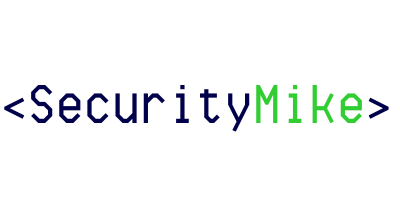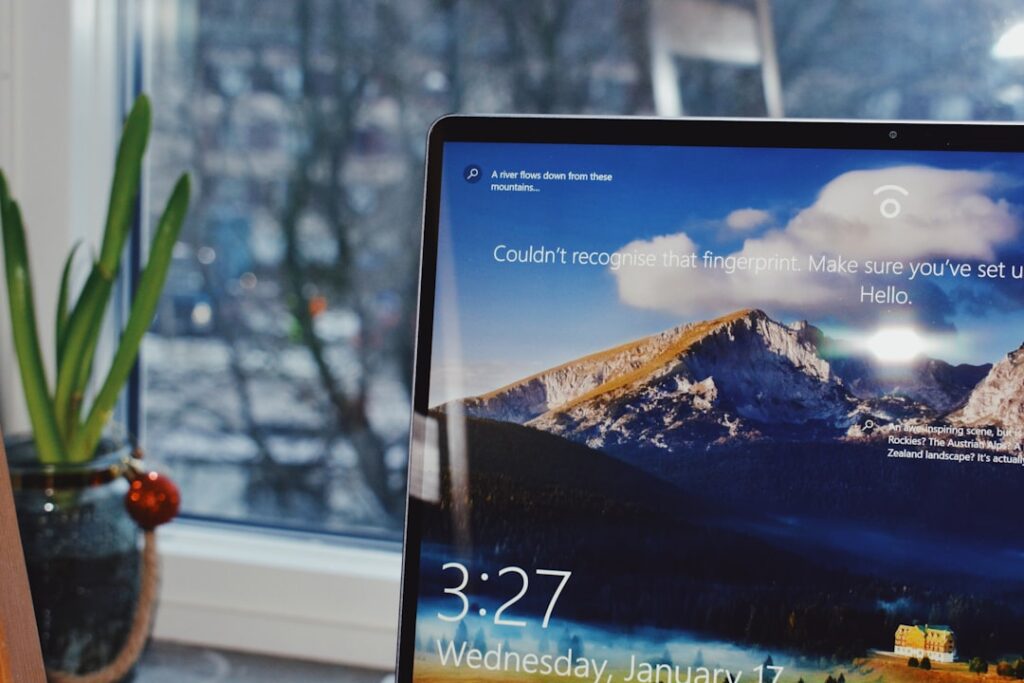In today’s digital age, cybersecurity is a critical concern for freelancers. As a freelancer, you rely heavily on technology and the internet to conduct your work, making you vulnerable to cyberattacks. Cybersecurity refers to the measures taken to protect computers, networks, and data from unauthorized access or damage. In this article, we will explore the importance of cybersecurity for freelancers and provide you with best practices and tips to secure your devices, networks, and personal information.
Key Takeaways
- Cybersecurity is important for freelancers and digital nomads to protect their personal and professional information.
- Cyberattacks can happen to anyone, and freelancers should be aware of the risks and take steps to prevent them.
- Best practices for securing devices and networks include using strong passwords, keeping software up to date, and using antivirus software.
- Choosing the right cybersecurity tools and software can help freelancers protect their devices and networks from cyber threats.
- Creating strong passwords and protecting accounts is essential for preventing unauthorized access to personal and professional information.
Understanding the Risks of Cyberattacks for Digital Nomads
Freelancers who work remotely face unique risks when it comes to cyberattacks. Unlike traditional office workers who are protected by corporate firewalls and security measures, freelancers often work from various locations using public Wi-Fi networks. This exposes them to potential threats such as data breaches, malware infections, and identity theft.
One common cyberattack that freelancers may encounter is phishing. Phishing involves tricking individuals into revealing sensitive information such as passwords or credit card details by posing as a trustworthy entity. For example, a freelancer may receive an email that appears to be from their bank asking them to update their account information. If they fall for the scam and provide their details, their personal and financial information could be compromised.
Another common cyberattack is malware infection. Malware refers to malicious software that is designed to disrupt or damage computer systems. Freelancers may unknowingly download malware when visiting compromised websites or opening infected email attachments. Once infected, their devices can be used to steal sensitive information or launch further attacks.
Best Practices for Securing Your Devices and Networks
Securing your devices and networks is crucial in protecting yourself from cyberattacks. Here are some best practices to follow:
1. Use firewalls: Firewalls act as a barrier between your device and the internet, monitoring incoming and outgoing network traffic. Enable the built-in firewall on your operating system or consider using a third-party firewall for added protection.
2. Install antivirus software: Antivirus software helps detect and remove malware from your devices. Choose a reputable antivirus program and keep it up to date to ensure maximum protection.
3. Keep software and operating systems up to date: Software updates often include security patches that address vulnerabilities. Regularly update your operating system, applications, and plugins to stay protected against the latest threats.
4. Enable automatic updates: Enable automatic updates for your operating system and software whenever possible. This ensures that you receive the latest security patches without having to manually check for updates.
5. Use strong, unique passwords: Create strong passwords that are difficult to guess and use a different password for each online account. Consider using a password manager to securely store and generate complex passwords.
Choosing the Right Cybersecurity Tools and Software
There are various cybersecurity tools and software available to freelancers. When choosing the right tools for your needs, consider the following factors:
1. Reputation and reviews: Research the reputation of the cybersecurity tools or software you are considering. Look for reviews from reputable sources or ask for recommendations from fellow freelancers.
2. Features and functionality: Determine what features are important to you based on your specific needs. For example, if you frequently use public Wi-Fi networks, look for a VPN (Virtual Private Network) service that encrypts your internet connection.
3. Compatibility: Ensure that the cybersecurity tools or software you choose are compatible with your devices and operating systems.
4. User-friendliness: Consider how easy the tools or software are to use and whether they require any technical expertise.
5. Cost: Evaluate the cost of the cybersecurity tools or software and determine if it fits within your budget. Keep in mind that investing in reliable cybersecurity tools is an investment in protecting your business and personal information.
Creating Strong Passwords and Protecting Your Accounts
Creating strong passwords and protecting your accounts is essential in preventing unauthorized access to your personal and financial information. Here are some tips to follow:
1. Use a combination of uppercase and lowercase letters, numbers, and special characters in your passwords.
2. Avoid using easily guessable information such as your name, birthdate, or common words.
3. Make your passwords at least 12 characters long to increase their complexity.
4. Consider using passphrases instead of passwords. Passphrases are longer and easier to remember, such as “Ilove2traveltheworld!”.
5. Enable two-factor authentication (2FA) whenever possible. 2FA adds an extra layer of security by requiring a second form of verification, such as a code sent to your mobile device, in addition to your password.
Staying Safe on Public Wi-Fi Networks

Using public Wi-Fi networks can be convenient for freelancers who work on the go, but it also poses significant risks. Here’s how you can protect yourself:
1. Avoid accessing sensitive information or conducting financial transactions on public Wi-Fi networks. Save these tasks for when you are connected to a secure network.
2. Use a VPN (Virtual Private Network) service to encrypt your internet connection and protect your data from potential eavesdroppers on public Wi-Fi networks.
3. Disable automatic Wi-Fi connections on your devices to prevent them from connecting to unknown or untrusted networks without your knowledge.
4. Verify the legitimacy of the Wi-Fi network before connecting. Ask the establishment for the correct network name and password, or use a trusted Wi-Fi hotspot finder app.
Protecting Your Online Identity and Personal Information
Protecting your online identity and personal information is crucial in preventing identity theft and other cybercrimes. Here are some tips to follow:
1. Use privacy settings: Adjust the privacy settings on your social media accounts to control who can see your personal information and posts.
2. Be cautious with sharing personal information: Avoid sharing sensitive information such as your full address, phone number, or financial details on public platforms or with unknown individuals.
3. Be wary of phishing scams: Be cautious of emails, messages, or phone calls asking for personal information or urging you to click on suspicious links. Verify the legitimacy of the request before providing any information.
4. Regularly review your online accounts: Periodically review your online accounts for any suspicious activity or unauthorized access. Change your passwords immediately if you suspect any compromise.
Dealing with Cybersecurity Threats and Attacks
If you suspect a cybersecurity threat or attack, it is important to take immediate action to minimize the damage. Here are some steps to follow:
1. Disconnect from the internet: If you suspect malware infection or unauthorized access, disconnect from the internet to prevent further damage or data loss.
2. Scan your devices for malware: Run a full scan using your antivirus software to detect and remove any malware from your devices.
3. Change passwords: Change the passwords for all your online accounts, especially if you suspect they have been compromised.
4. Report the incident: If you have fallen victim to a cyberattack or scam, report it to the appropriate authorities such as your local law enforcement agency and the Federal Trade Commission (FTC).
Preparing for Data Loss and Recovery
Data loss can occur due to various reasons such as hardware failure, accidental deletion, or cyberattacks. It is important to back up your data regularly and have a plan in place for data recovery. Here are some tips:
1. Backup your data: Regularly back up your important files and documents to an external hard drive, cloud storage service, or both. Consider using automated backup solutions to ensure that your data is always protected.
2. Test your backups: Periodically test your backups to ensure that they are working properly and that you can successfully restore your data if needed.
3. Use encryption: Encrypt your backups to protect your data from unauthorized access in case of theft or loss.
4. Consider data recovery services: If you experience data loss and are unable to recover it yourself, consider using professional data recovery services that specialize in retrieving lost or damaged data.
Maintaining Cybersecurity Awareness and Vigilance as a Freelancer
Cybersecurity threats and best practices are constantly evolving, so it is important to stay up to date and maintain awareness and vigilance. Here are some tips:
1. Stay informed: Keep up to date with the latest cybersecurity news, trends, and best practices by following reputable sources such as cybersecurity blogs, news websites, and industry experts.
2. Attend cybersecurity training or webinars: Take advantage of cybersecurity training programs or webinars that provide valuable insights and knowledge on how to protect yourself from cyber threats.
3. Join online communities: Join online communities or forums where freelancers discuss cybersecurity topics and share their experiences and tips.
4. Regularly review and update your security measures: Periodically review your cybersecurity measures and update them as needed to ensure that you are adequately protected against the latest threats.
As a freelancer, cybersecurity should be a top priority to protect your business, personal information, and reputation. By implementing the best practices and tips covered in this article, you can significantly reduce the risk of cyberattacks and safeguard your digital presence. Remember to stay informed, stay vigilant, and regularly review and update your security measures to stay one step ahead of cybercriminals.
If you’re a freelancer who values their digital nomad lifestyle, it’s crucial to prioritize cybersecurity. With the rise of cyber threats, protecting your online presence has become more important than ever. In a recent article by Security Mike, titled “Digital Deception in Democracy: Navigating the Disinformation in Elections,” the author explores the impact of disinformation campaigns on democratic processes. This thought-provoking piece sheds light on the importance of staying vigilant and informed in an era where misinformation can have far-reaching consequences. Check out the article here to gain valuable insights into the world of cybersecurity and its implications for freelancers like yourself.
FAQs
What is cybersecurity?
Cybersecurity refers to the practice of protecting electronic devices, networks, and sensitive information from unauthorized access, theft, or damage.
Why is cybersecurity important for freelancers?
Freelancers often work remotely and rely heavily on technology to communicate with clients and store sensitive information. Cybersecurity is important to protect their digital assets and prevent cyber attacks that could compromise their work and reputation.
What are some common cyber threats that freelancers face?
Freelancers are vulnerable to various cyber threats, including phishing scams, malware attacks, ransomware, and identity theft. These threats can result in financial loss, data breaches, and reputational damage.
How can freelancers protect themselves from cyber threats?
Freelancers can protect themselves from cyber threats by using strong passwords, enabling two-factor authentication, keeping software and antivirus programs up to date, avoiding public Wi-Fi networks, and backing up important data regularly.
What are some cybersecurity best practices for freelancers?
Some cybersecurity best practices for freelancers include using a virtual private network (VPN), encrypting sensitive data, avoiding suspicious emails and links, limiting access to sensitive information, and using secure cloud storage services.
What should freelancers do if they experience a cyber attack?
If a freelancer experiences a cyber attack, they should immediately disconnect from the internet, change their passwords, and notify their clients and relevant authorities. They should also seek professional help to mitigate the damage and prevent future attacks.

